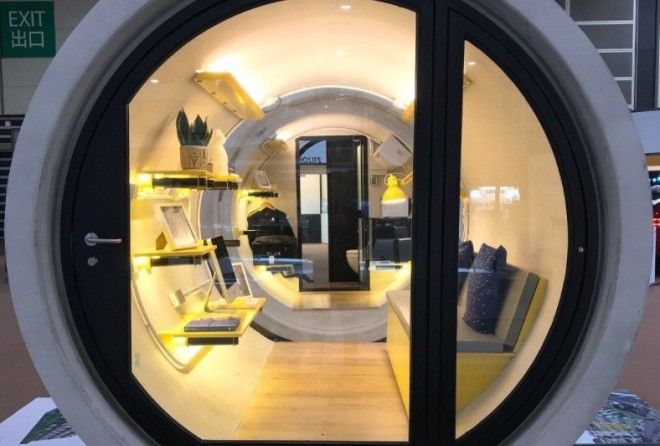New York City, for example, is famous for bizarre and ludicrously expensive housing situations. But in recent years, Hong Kong has risen to become the priciest city in the world for home buyers.
A booming economy laden with available jobs makes Hong Kong an attractive draw for skilled workers, especially in the tech industry. Unfortunately, however, the former British Colony is running out of room to house its citizens, which is making it difficult for companies to fill their open positions.
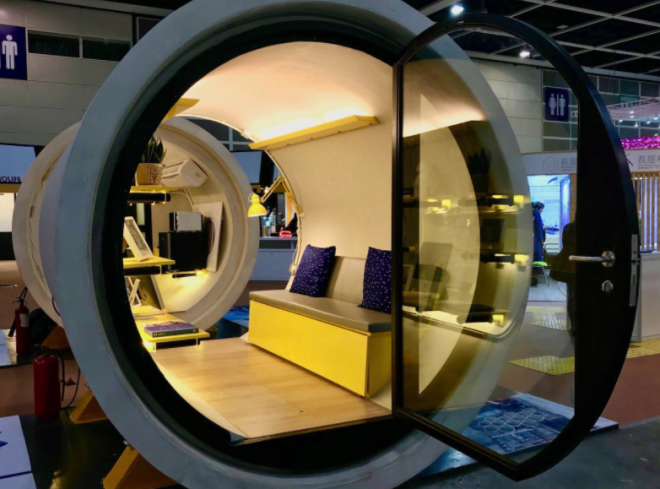
However, James Law, a Hong Kong based architect and owner of James Law Cybertecture, believes he’s designed a solution that will help bring Hong Kong’s rapidly developing housing crisis to an abrupt halt.
You see, Law’s created 100 square foot “tube homes” that are built mainly out of concrete water pipes.
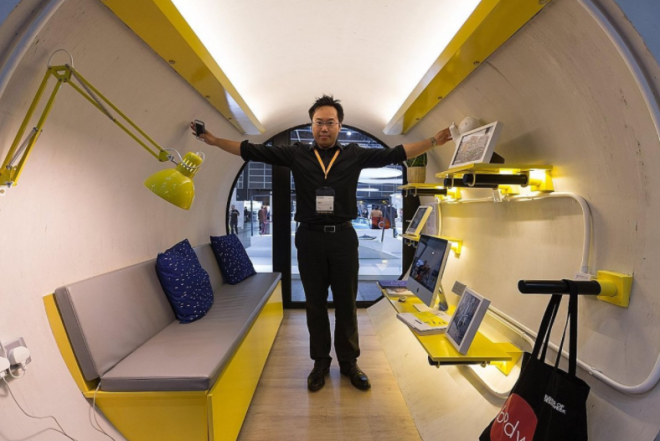
James calls his idea the ‘OPod’. Despite the fact that these homes include just half the square footage of the average one-car garage, they aren’t as cramped as you would think.
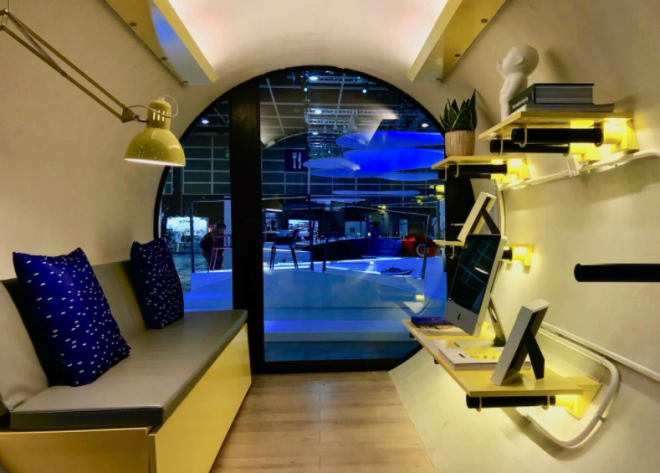
The OPod includes what most people feel are mandatory: A pull out couch that doubles as a bed, shelving units, a microwave, a mini fridge, and an air conditioning unit in the main living space.
And, somehow, it still has enough room for a functioning bathroom that features a shower stall.
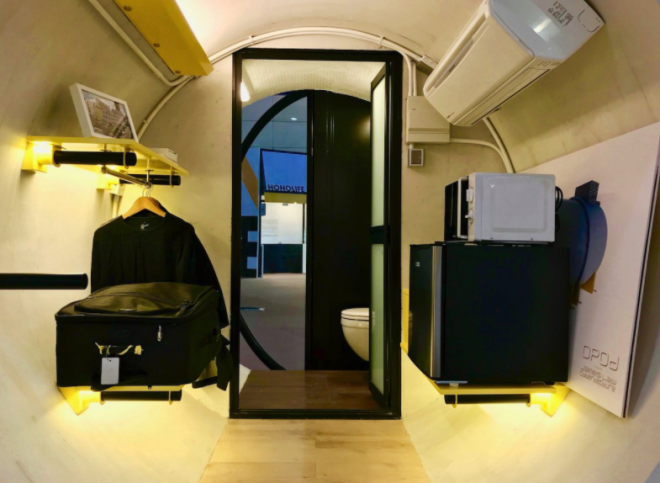
For what Law’s OPod lacks in square footage, it makes up for in convenience. Law envisions potential owners will place them in traditionally disregarded spaces.
For example, old ships could be permanently docked and used to create an OPod community!
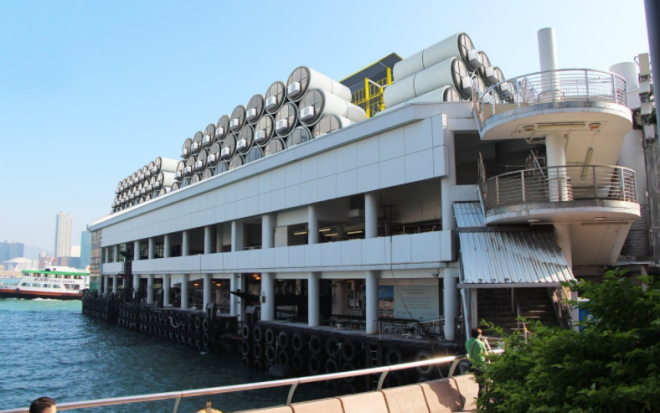
And, in efforts to maximize every single solitary square foot available in Hong Kong’s most desired neighborhoods, Law believes the tube homes can be stacked on top of each other in otherwise unused spaces between buildings.
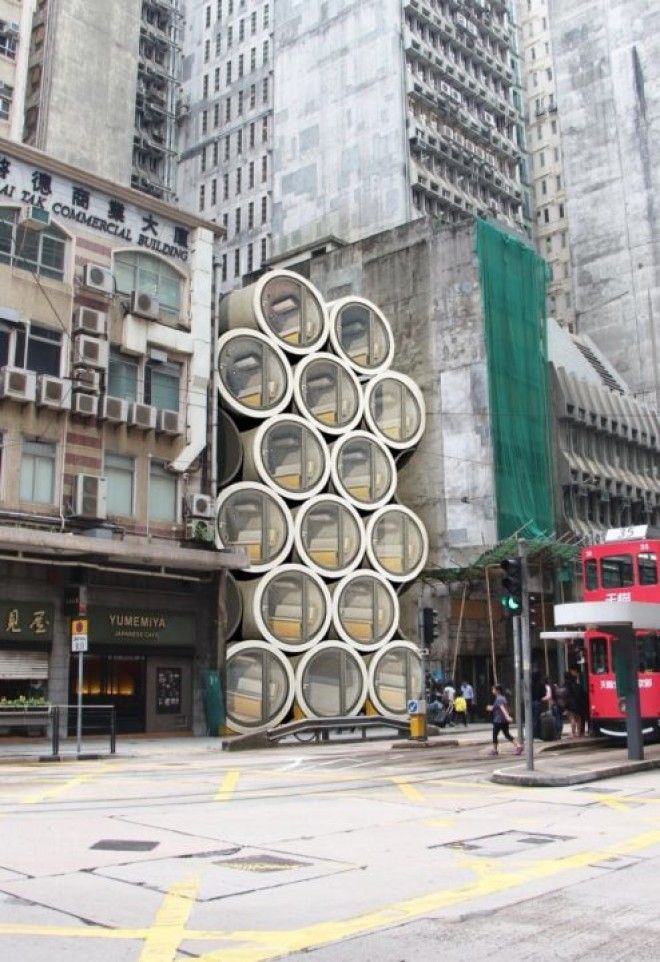
Land underneath Hong Kong’s many bridges and overpasses is another possibility.
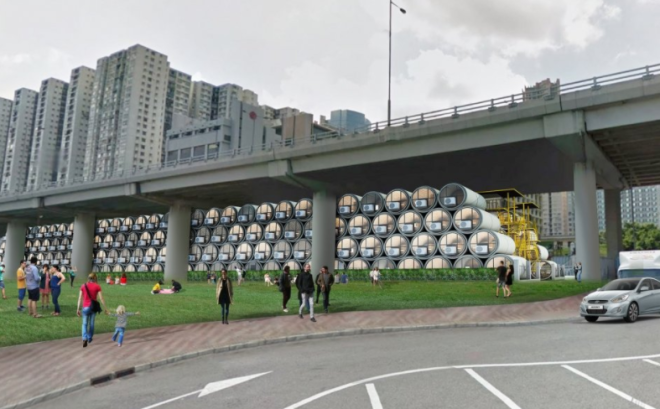
The most appealing aspect for potential buyers is the especially thrifty price tag the OPod will carry once it surpasses the prototype stage and hits the market. Law expects the units to go for right around $15,000 thanks to the low overhead involved in the OPod’s construction.
In comparison, a 600 square foot home in one of Hong Kong’s prime locations can cost in upward of $1.8 million.
“In Hong Kong, many people live in squalid conditions or in partition dwellings as there are extremely high rents, housing costs, and inadequate public housing,” he said. “The OPod is an inexpensive alternative.”
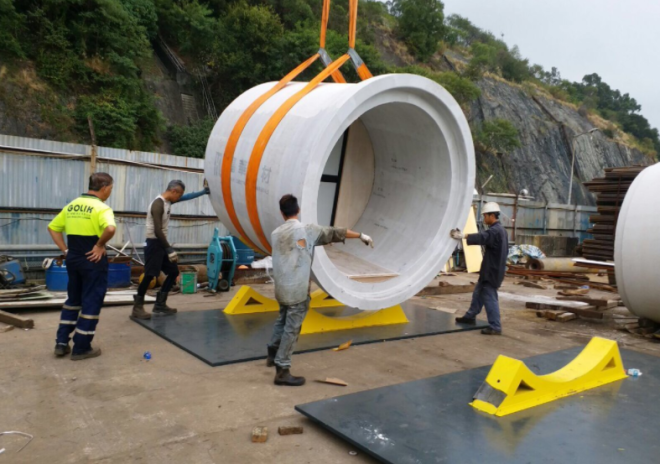
Obviously, OPod owners, similarly to those who live in a trailer park and pay a monthly lot fee, will have to rent or purchase a space to permanently park their unit.
But it might not be that steep of a price if its done within a planned community.
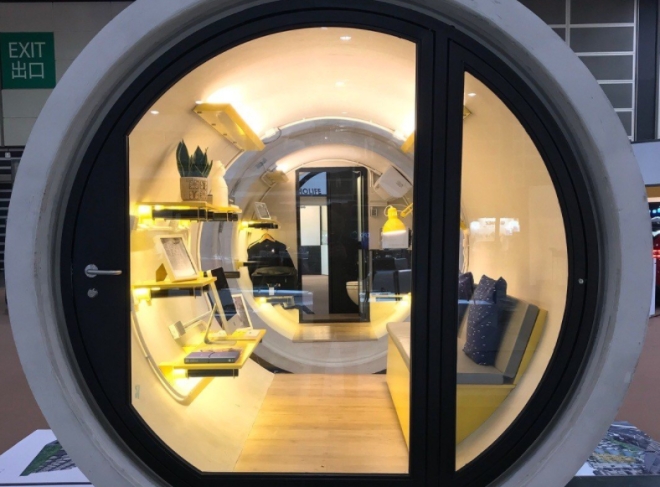
It’s truly amazing to see what talented entrepreneurs can create when they dedicate their time to solving real world problems instead of focusing strictly on highly profitable endeavors!
